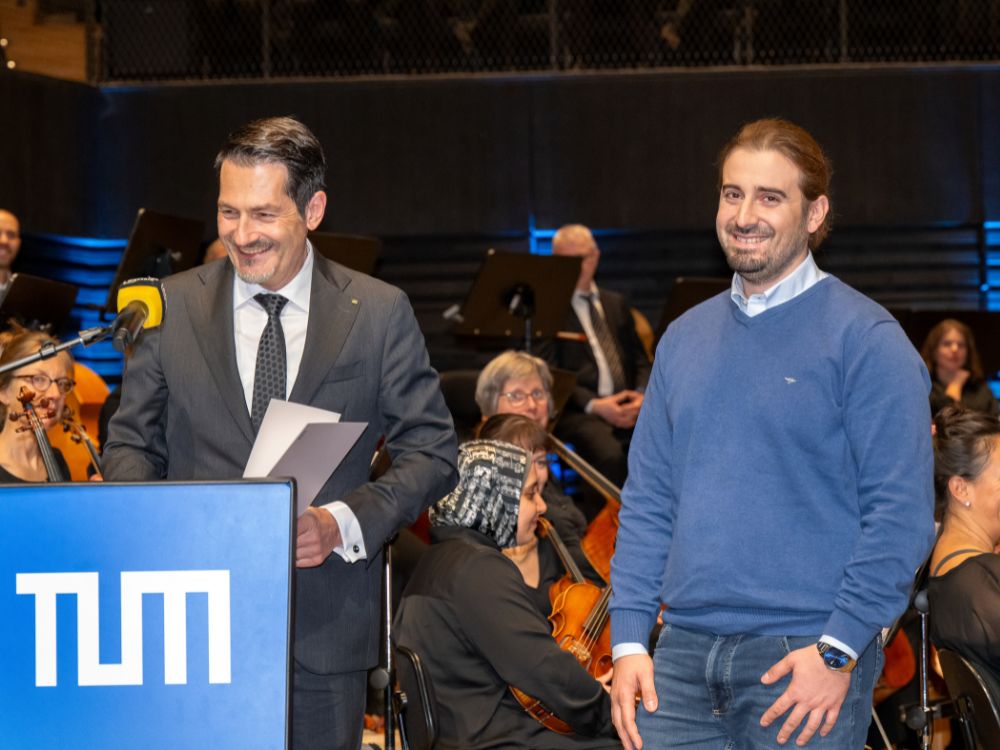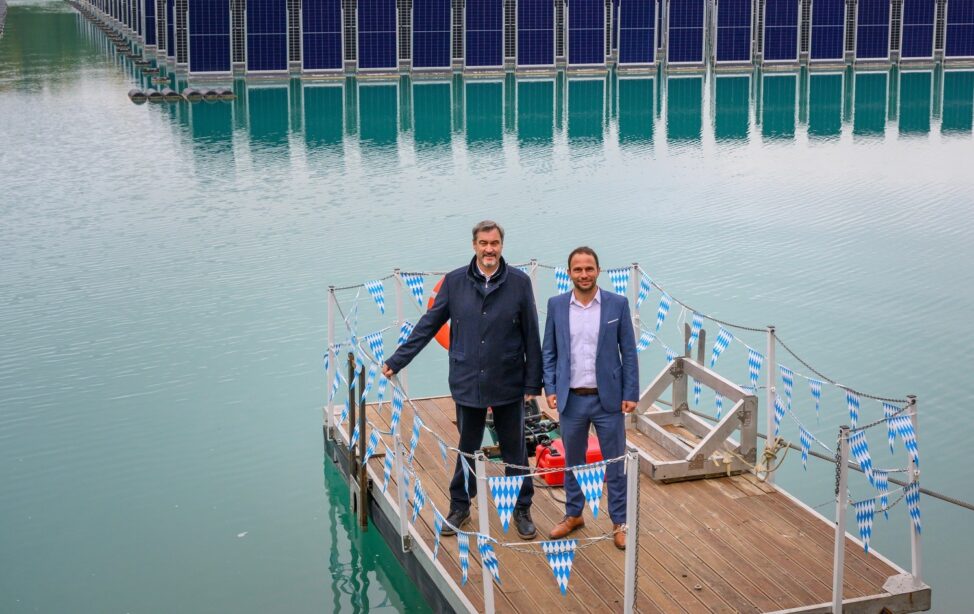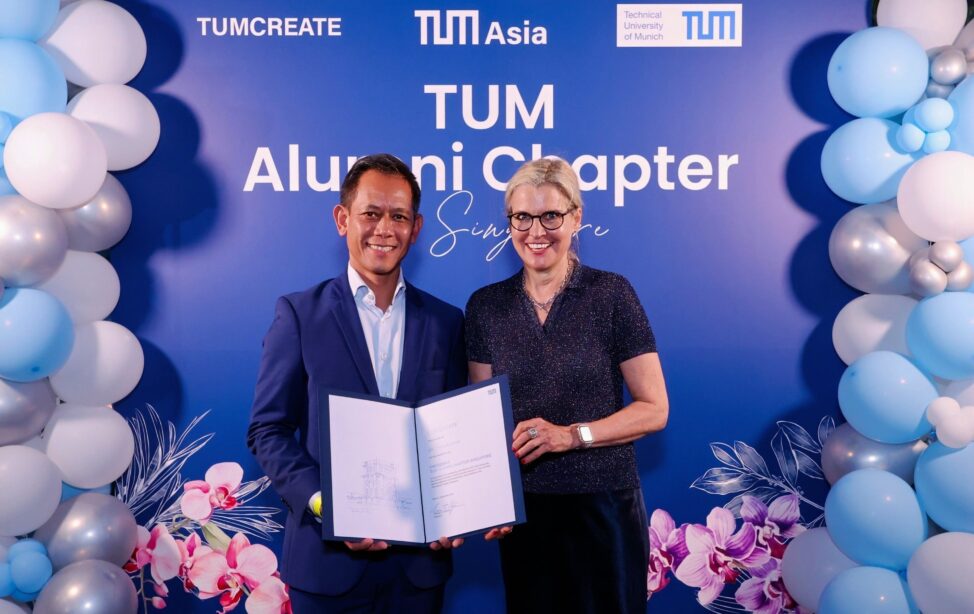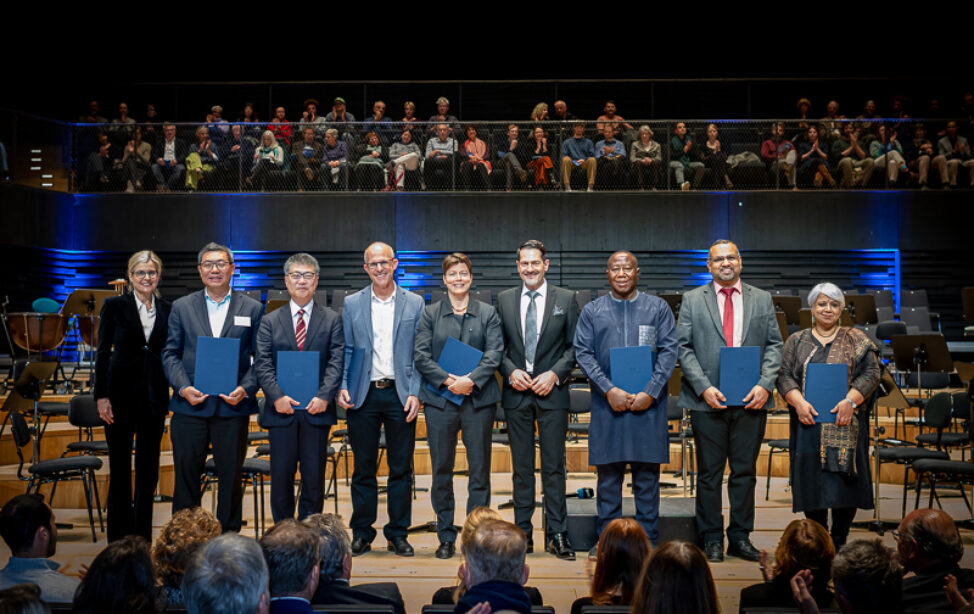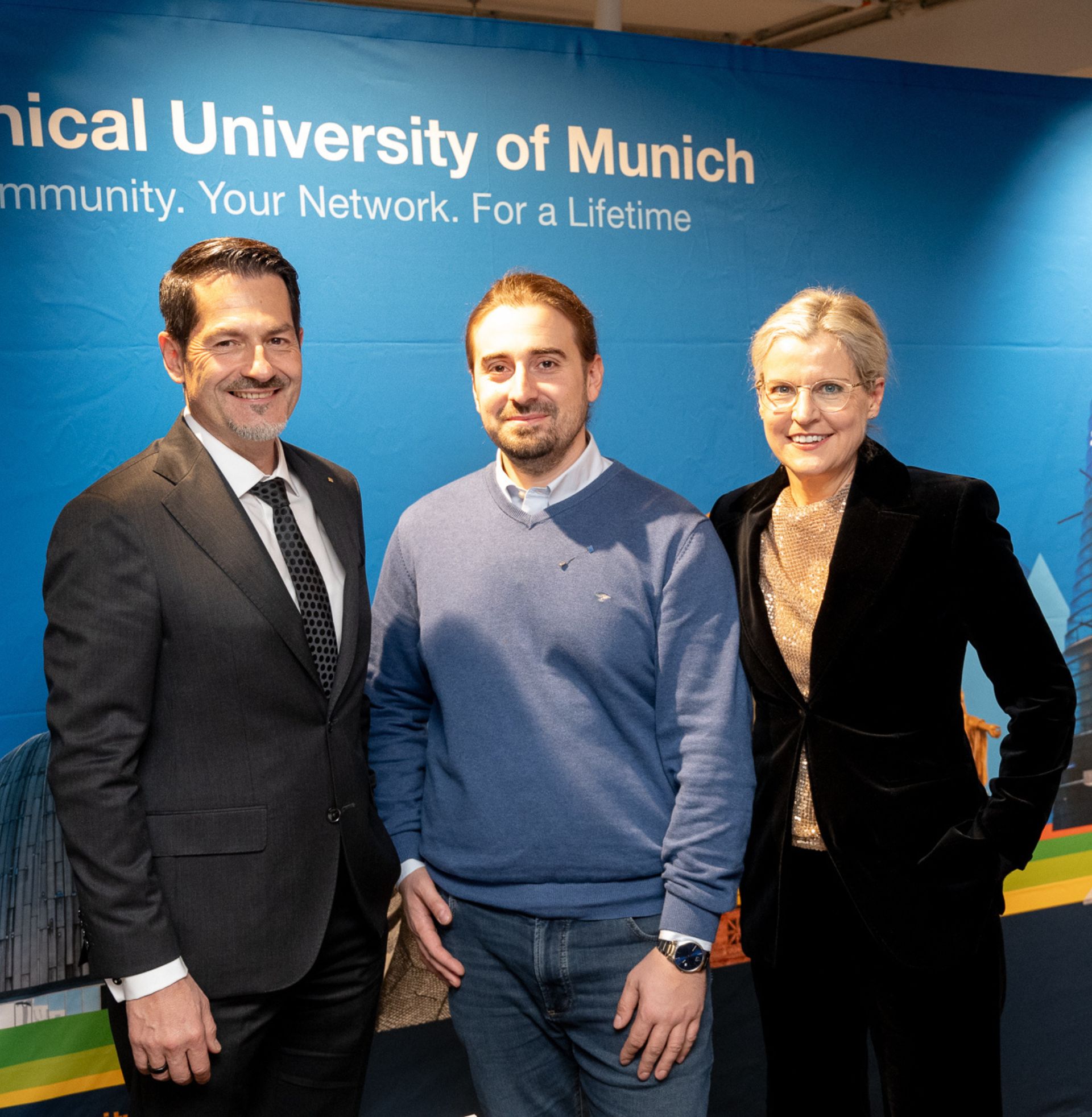
TUM Alumnus Dr. Nikolaos Kosmas Chlis (2nd from left) met TUM President Prof. Dr. Thomas F. Hofmann and Senior Vice President for International Alliances and Alumni Prof. Dr. Juliane Winkelmann at the Vivat TUM concert (Photo: Astrid Eckert).
OFF TO MUNICH
After his master’s degree, it was clear to him: He wanted to pursue his doctorate abroad and see how he could apply the fundamentals he had learned in Greece. Besides Finland, Germany was also an option as a host country. The deciding factor was the doctoral program of the Graduate School of Quantitative and Molecular Biosciences Munich (QBM). The international graduate school is a joint initiative of TUM, LMU, the Max Planck Institute of Biochemistry, and the Helmholtz Center. Traditionally separate disciplines such as biochemistry, medicine, bioinformatics, biophysics, and applied mathematics are brought together there.
Half of the doctoral students at the Graduate School were computer specialists like Nikolaos Kosmas Chlis, who wanted to learn something about biology. The other half were laboratory specialists who wanted to learn more about computers. “The various perspectives that came together at the Graduate School really propelled me forward and still help me approach my projects from different angles,” says the TUM Alumnus. At the Klinikum rechts der Isar, he was able to experience the everyday life of doctors and feel the responsibility they bear in their daily work.
“Despite all our differences, we humans have so many similarities at the same time. It’s simply heartwarming and empowering.”
He remains closely connected to TUM even after his doctorate. He is currently exploring opportunities for research collaborations with TUM. “There is an enormous amount of expertise at my alma mater, especially in AI data analysis. You can’t appreciate it highly enough,” says the TUM Alumnus. The scientific excellence at TUM is there. But Nikolaos Kosmas Chlis has also experienced the human side here, which is just as important to him. “I don’t want to sound cliché, but the people I met at TUM were individuals you could simply work well with and on an equal footing,” he says.
At his graduate school, Nikolaos Kosmas Chlis worked with people from all over the world. “By moving to Germany, I got to know the Germans better, but at the same time, I also met many other nationalities, which constantly broadened my perspective,” he says. “In doing so, I realized that despite all our differences, we humans have so many similarities, which is simply heartwarming and empowering.” The good cooperation and encounters with people from all over the world deeply impressed Nikolaos Kosmas Chlis. “My doctorate at TUM allowed me to continue believing in Europe and the European family,” he says today.
Nikolaos Kosmas Chlis firmly believes that international perspectives and cooperative work towards goals significantly advance a community. He recently registered as an alumnus in the global TUM network – as the 100,000th member.
At the traditional Vivat TUM Advent concert in the Isarphilharmonie, where students and alumni come together, TUM President Prof. Dr. Thomas F. Hofmann did not miss the opportunity to bring Nikolaos Kosmas Chlis onto the big stage and thank him for his commitment in front of the full house. “Dr. Chlis exemplifies: TUM is not just a place to study but a lifelong community of a wonderful variety of committed people,” said the president. “That is why I would like to motivate all our alumni: Get involved as role models and help create the inspiring study and work environment at TUM for future generations, which once laid the foundation for your own professional success.”
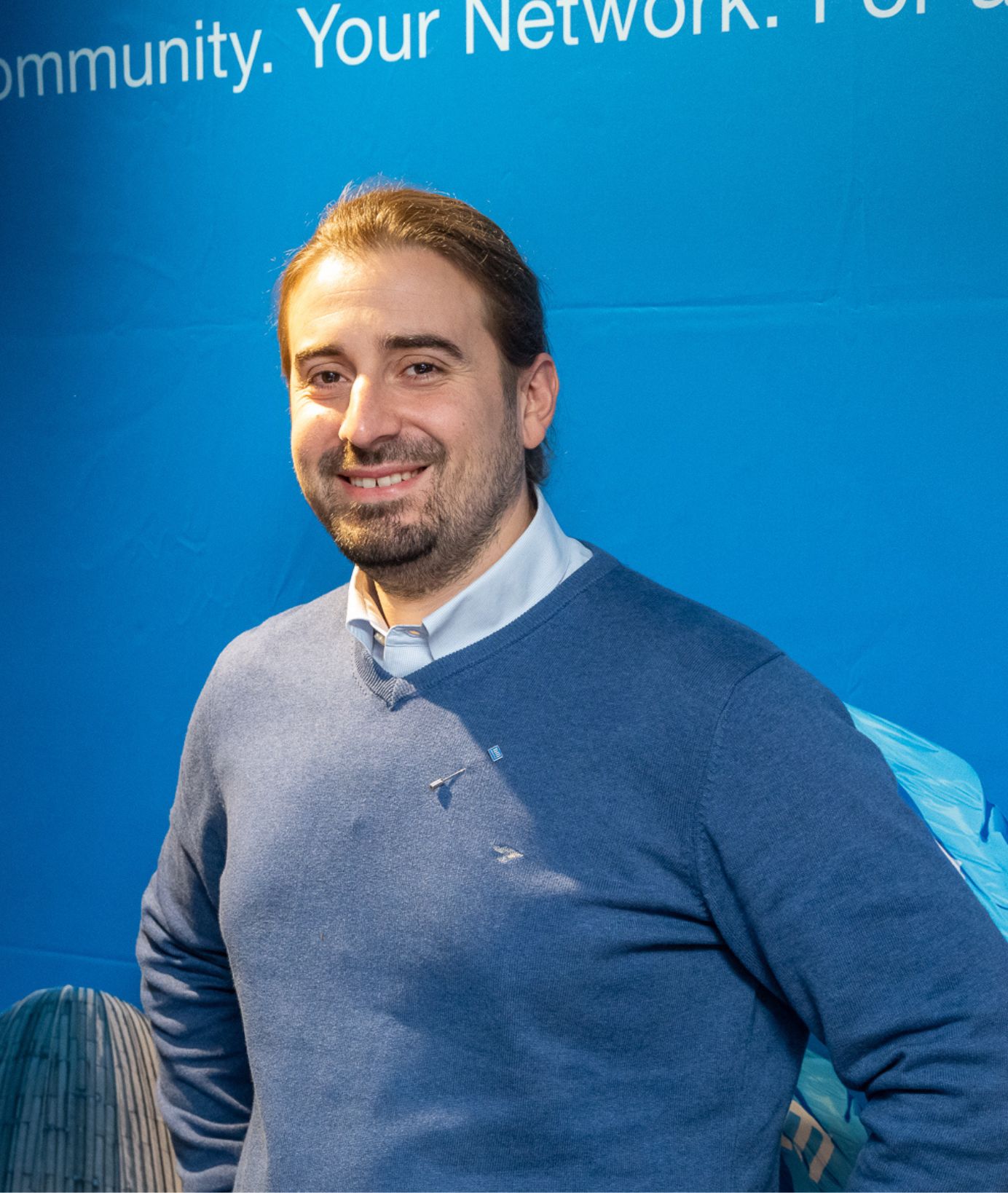
TUM Alumnus Dr. Nikolaos Kosmas Chlis (Picture: Astrid Eckert/TUM).
Doctorate Mathematical Modeling of Biological Systems 2020
Nikolaos Kosmas Chlis wrote his doctoral thesis at the TUM Chair of Mathematical Modeling of Biological Systems under Prof. Dr. Dr. Fabian Theis, focusing on machine learning and computational biology. After completing his PhD, he conducted research at the Helmholtz Center on the use of AI for biomedical imaging. Since 2020, Nikolaos Kosmas Chlis has been working at the pharmaceutical company Roche in Penzberg. As a Senior Data Scientist and Matrix Lead in Immunology and Data Science, he is responsible for leading research projects. In 2024, he became the 100,000th member of the alumni network, which spans over 140 countries.
